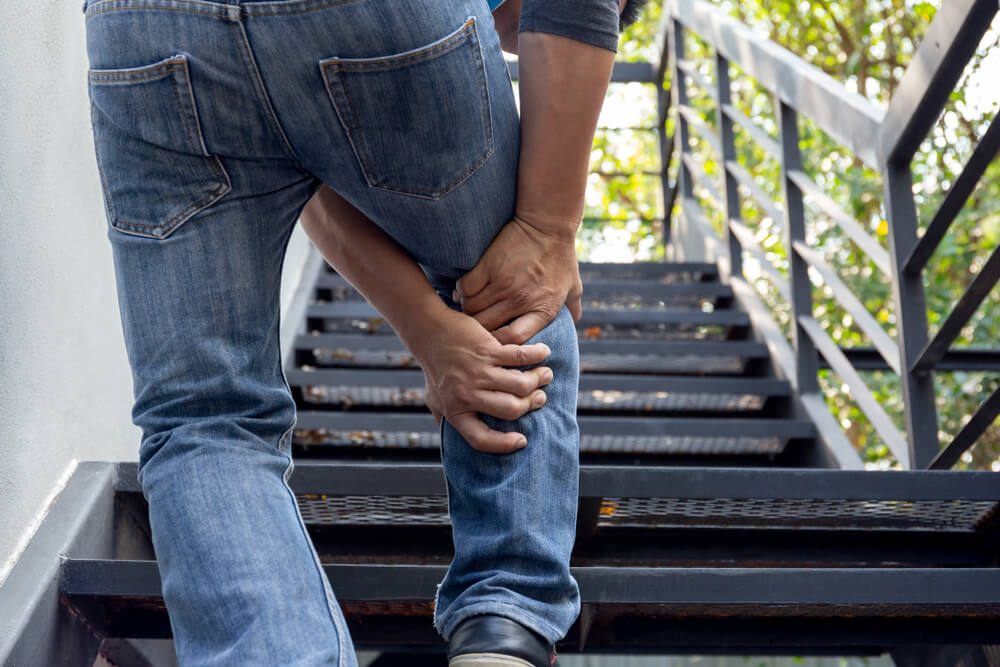Walking up and down stairs is something many people do daily at home, at work and while doing errands. However, this common activity could be causing knee pain for some. It’s difficult to effectively treat knee pain if you don’t know what’s causing it, but people dealing with knee pain when they’re walking up stairs but not down could have a condition called chondromalacia.
What is chondromalacia?
Chondromalacia is a knee condition where the cartilage in the kneecap softens and wears away. The cartilage under the kneecap is supposed to help keep the kneecap in its proper position. When you move your knee, your kneecap should slide in a groove on the end of your thighbone, but damage or wearing in the cartilage can cause the kneecap to rub against the thighbone as your knee bends.
What causes chondromalacia?
Several factors commonly cause chondromalacia and the pain it causes when walking up stairs. The most common source of this condition is repetitive knee movements. Younger, athletic people often run or walk to stay in shape, and these repetitive movements can lead to chondromalacia since they stress the kneecap cartilage. Knee arthritis can also be a cause of this condition. As a result, some older people could develop this condition as their arthritis worsens. In addition, flat feet and previous knee injuries can increase your risk of developing chondromalacia.
What are the symptoms of chondromalacia?
Aside from knee pain when walking up stairs but not down, people with chondromalacia can have other symptoms. Swelling in the knee is another common symptom of this issue, and you might notice grinding or popping sounds when moving your knee. Standing up can lead to pain when you have chondromalacia. Pain is also common when you move your knee after having it in one position for a long time, such as when riding in the car.
Visit Whatcom Physical Therapy to find help for knee pain when walking up stairs
Are you ready to find a way to reduce your knee pain when walking up stairs? Whatcom Physical Therapy is here to help you. We offer free screenings, which are designed to help confirm the source of your knee pain. Our team also specializes in building personalized treatment plans, and your plan for knee pain could include therapy techniques such as:
Take the next step to start getting our help with your knee pain. Contact our team today for more information or to schedule an initial appointment.
